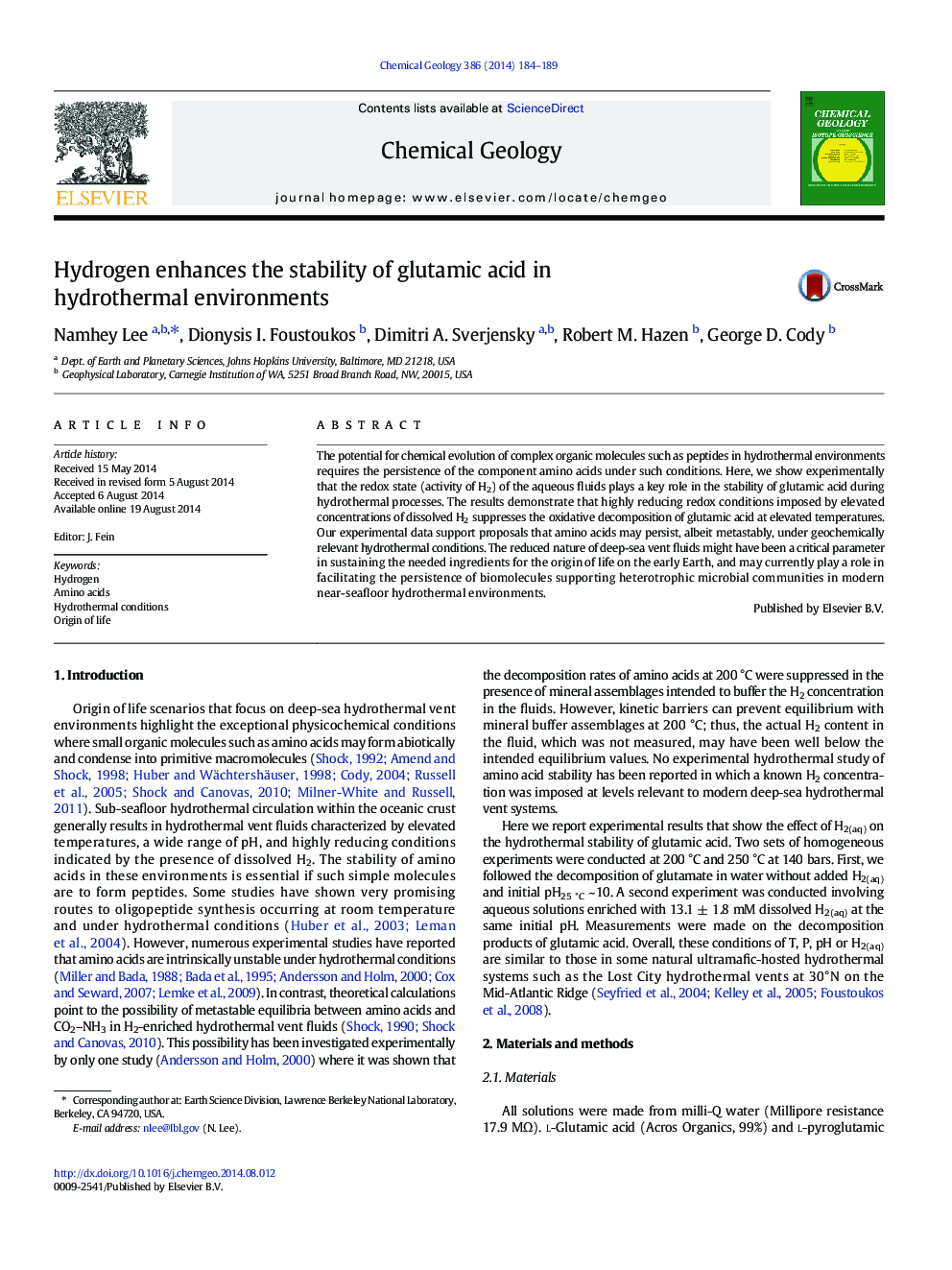| Article ID | Journal | Published Year | Pages | File Type |
|---|---|---|---|---|
| 4698664 | Chemical Geology | 2014 | 6 Pages |
•Reducing nature of vent fluids was recreated experimentally imposed by dissolved H2.•The oxidative decomposition of glutamate is suppressed at elevated P–T condition.•Reducing conditions favor the persistence of glutamate under hydrothermal conditions.
The potential for chemical evolution of complex organic molecules such as peptides in hydrothermal environments requires the persistence of the component amino acids under such conditions. Here, we show experimentally that the redox state (activity of H2) of the aqueous fluids plays a key role in the stability of glutamic acid during hydrothermal processes. The results demonstrate that highly reducing redox conditions imposed by elevated concentrations of dissolved H2 suppresses the oxidative decomposition of glutamic acid at elevated temperatures. Our experimental data support proposals that amino acids may persist, albeit metastably, under geochemically relevant hydrothermal conditions. The reduced nature of deep-sea vent fluids might have been a critical parameter in sustaining the needed ingredients for the origin of life on the early Earth, and may currently play a role in facilitating the persistence of biomolecules supporting heterotrophic microbial communities in modern near-seafloor hydrothermal environments.
